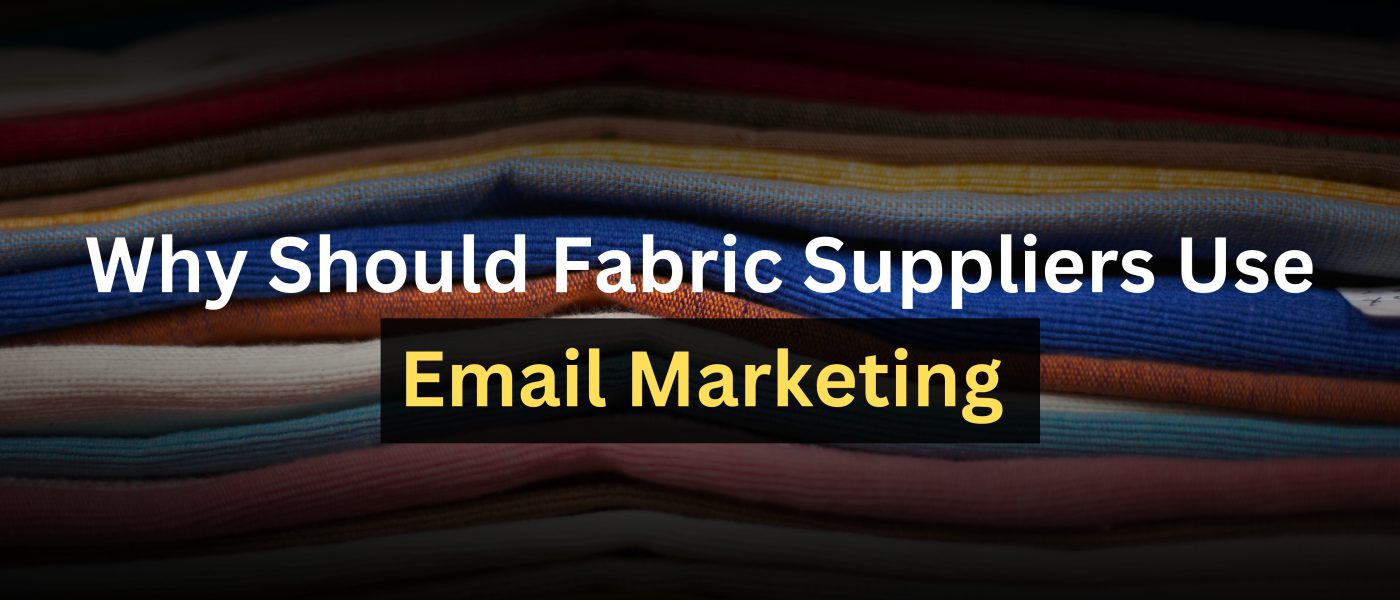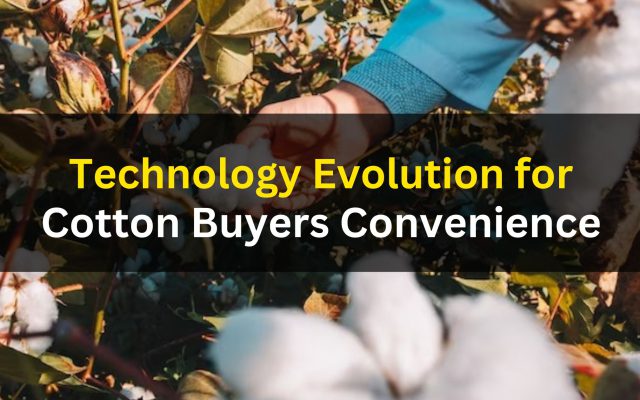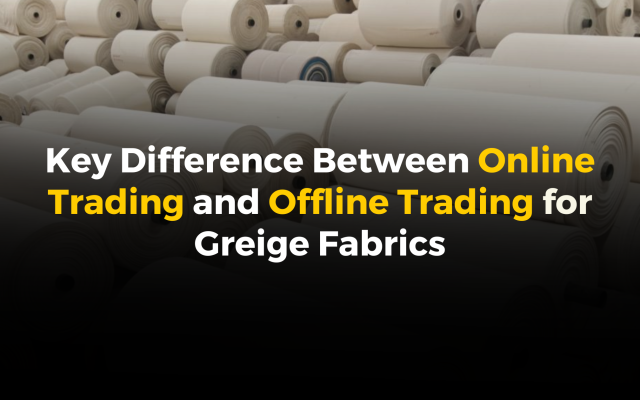Email marketing allows fabric-selling websites to establish and maintain personal communication with their vendors and customers.
Despite the emergence of new digital marketing techniques, email marketing remains a crucial and highly effective marketing strategy for B2B fabric suppliers. B2B marketing, which involves sending offers and updates, educating about products, and announcing new launches, targets other businesses rather than individual consumers.
While the end goal of advertising campaigns is to generate marketing qualified leads (MQLs) for both B2B and B2C companies, email marketing is particularly effective for engaging and connecting with potential B2B buyers, surpassing other popular digital marketing tools in this regard.
By regularly sending promotions, greetings, newsletters, and updates, you can build a strong relationship with your esteemed clients.
Here are a few statistics that make our point:
- Email marketing ranks as the third most popular distribution channel, with 87% of users reporting positive returns.
- Email marketing is the primary strategy for 84% of B2B organizations, indicating that emails are a more effective channel for attracting customers to buy cotton yarn online compared to Facebook or Google ads.
- For every 100 rupees invested in email marketing, fabric-selling websites see a return of over 5000 rupees.
Why Should Fabric Suppliers Use Email Marketing in 2024
If we were to say that textile manufacturers become successful only because of quality products and affordable prices, then label us naïve. Textile manufacturers in India succeed because they can create aspirational value through their marketing. And there’s nothing cheaper and more effective than email marketing, which helps businesses develop long-term value.
Tailored Messaging
Email marketing fabric suppliers to effortlesslysegment their audience. For instance, if you are aiming to target buyers with a specific campaign, you can group like-minded businesses and dispatch emails that carry tailored content.
Personalized promotions and updates are highly effective in lead generation, as they engage the intended audience directly, doubling the efficiency of the communication.
Most B2B Businesses Use Emails
For a textile business, it’s crucial to capitalize on a medium frequented by its target customer. Despite the appeal of social media, email stands out as the most potent channel for communication and lead conversion in the B2B landscape.
This is because an email list is a permanent asset, forming one of the initial touchpoints with your customer base. Moreover, this list expands with each new visitor to your website or TEXchange Global forum (if you are a member), enhancing its value over time.
Besides, Email marketing simplifies the process of earning your customers’ trust. Given that 90% of B2B clients are industry experts, unlike their B2C counterparts, this channel is cost-effective for enlightening your customers. It’s an excellent medium to deliver valuable insights, tackle prevalent issues with your offerings, guide them to your website or blog, propose inventive solutions, and sell textile online.
Cost-Effective and Mobile-Optimized
Email marketing requires only a fraction of the investment compared to other online marketing strategies, yet it yields a much higher return. For B2B textile companies operating on a tight marketing budget or those new to online marketing, email serves as a reliable and primary marketing channel.
With the mobile compatibility of email platforms like Gmail and Hotmail, email advertising campaigns are instrumental in building robust B2B connections. For instance, if youare using emails to sell textile online, simply craft an ad campaign featuring a clickable order link and distribute it among your purchasers.
Offering easily accessible deals or information via mobile enhances your brand’s value to your customers.
Email Marketing Insights are Measurable
Not every marketing channel allows for the detailed measurement of campaign effectiveness. However, with email marketing, you can measure the performance of each email sent, including who opened it, who ignored it, who forwarded it, and who clicked on any links.
Integrated email marketing systems enable you to assess key performance indicators such as open rates, engagement rates, click-through rates, and delivery rates at each step of the customer’s purchasing journey.
This information can be usedto modify or improve your current customer engagement strategies. Emails are an invaluable asset for B2B companies, especially those in the textile industry. If you are a fabric supplier in India or aiming for a global presence, leveraging the features and capabilities of email marketing can be pivotal in expanding your business.




